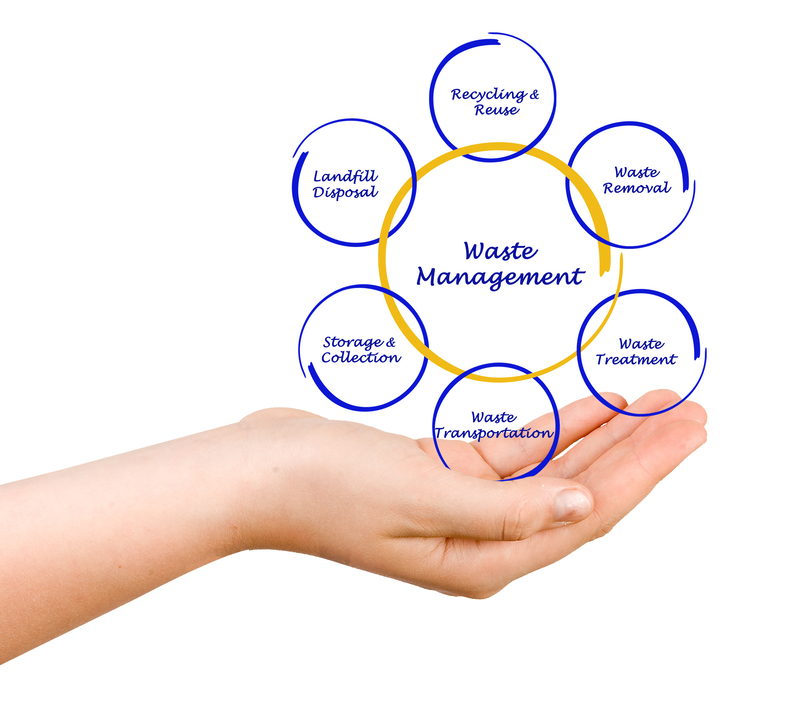Innovative Recycling Strategy from Resource Launches in London
Posted on 01/01/2025
In today's society, the issue of waste management and recycling has become increasingly critical. With cities around the world struggling to handle the growing amount of waste produced by their inhabitants, finding innovative solutions is of utmost importance. In London, a city known for its impressive resource management, a new recycling strategy has been launched that is gaining attention and praise from environmentalists and citizens alike. Let's take a closer look at how this innovative recycling strategy is making a positive impact in London.
Resource
Resource is a London-based company that specializes in providing sustainable waste management solutions. Their new recycling scheme focuses on incorporating advanced technology and community involvement to address the challenges of waste management in the city.

Partnership with Locals
One of the key elements of this strategy is Resource's partnership with local communities and businesses. They have introduced a unique "zero waste" program, where residents are educated about proper disposal methods for different types of waste and are encouraged to reduce, reuse, and recycle. This not only helps to decrease the amount of waste being sent to landfills but also promotes a more sustainable lifestyle among the community.
Smart Technology
Resource has also implemented smart technology in their collection system. Each household is provided with a specially designed bin that uses radio frequency identification (RFID) technology to track their waste habits. The data collected from these bins is then used to create personalized reports for each household, highlighting areas where they can improve their recycling habits. This not only provides valuable insights for individuals but also helps Resource tailor their services to better meet the needs of the community.
In addition to their community outreach efforts, Resource has also invested in state-of-the-art facilities and equipment to process and sort recyclable materials. They have partnered with local processing plants to ensure that all materials collected are efficiently sorted and recycled into new products. This allows for a more circular economy where resources are kept in use for as long as possible.
One notable aspect of this strategy is its use of innovative technology. Resource uses artificial intelligence (AI) to constantly analyze data and make adjustments to their operations in real-time, leading to a more streamlined and efficient waste management system. This not only saves time and resources but also reduces the carbon footprint of their operations.
Potential Challenges
While the launch of this recycling strategy has been met with great enthusiasm, there are some potential challenges that need to be considered. One concern is the cost of implementing such advanced technology and facilities, which may lead to higher service fees for residents. Resource will need to find a balance between investing in sustainable solutions and ensuring affordability for all. Additionally, community participation plays a crucial role in the success of this program; therefore, continuous education and outreach efforts will be needed to maintain the momentum.

Takeaways
For individuals looking to adopt more sustainable habits, there are a few key takeaways from Resource's recycling strategy. Firstly, reducing waste at the source through practices like composting and buying products with less packaging can greatly reduce the amount of waste that needs to be managed. Secondly, properly separating recyclables and educating oneself about local recycling guidelines can make a significant impact in diverting materials from landfills. Lastly, supporting companies like Resource who are dedicated to sustainability can help drive positive change in waste management practices.
Conclusion
In conclusion, Resource's innovative recycling strategy has set an example for other cities around the world. By incorporating advanced technology, community involvement, and partnerships with local businesses and processing plants, they have created a holistic approach to waste management that benefits both the environment and society. While there may be some challenges along the way, it is evident that this strategy has the potential to make a significant impact in creating a more sustainable future for London and beyond. Let us hope that more companies follow suit and implement similar strategies in their communities to create a greener planet for generations to come.
Latest Posts
DIY Paper Recycling at Home in 6 Steps
Advance Your Recycling Approach
Plant-Based Plastics: Future Innovations






